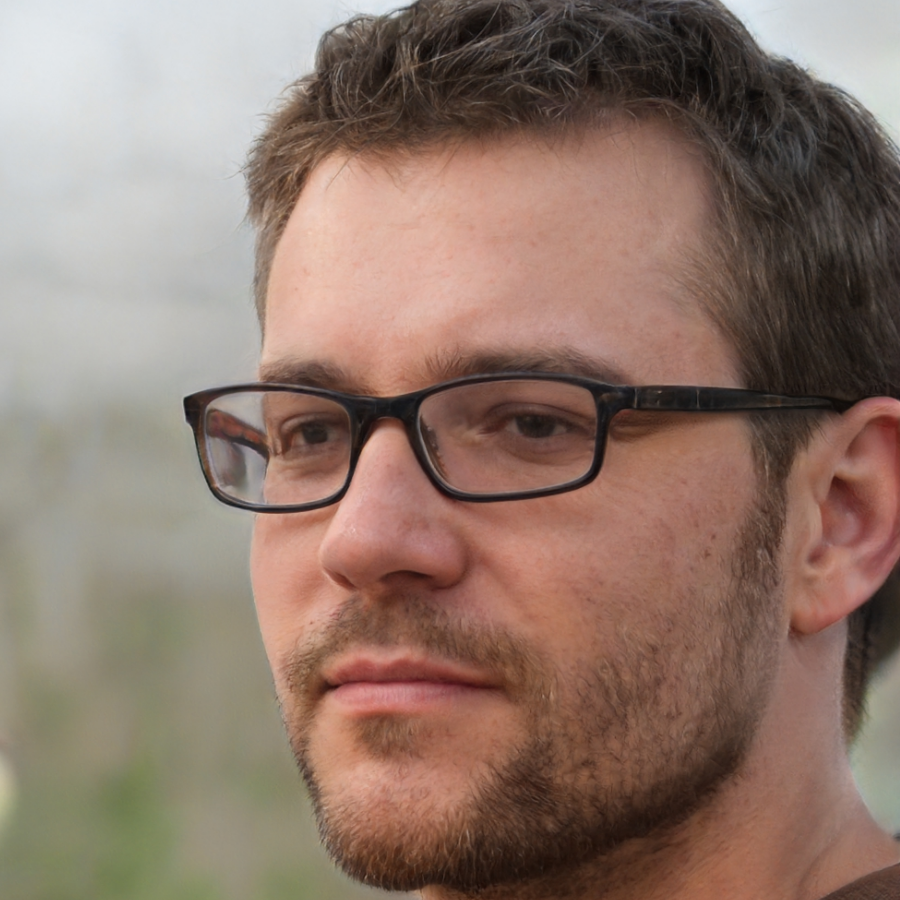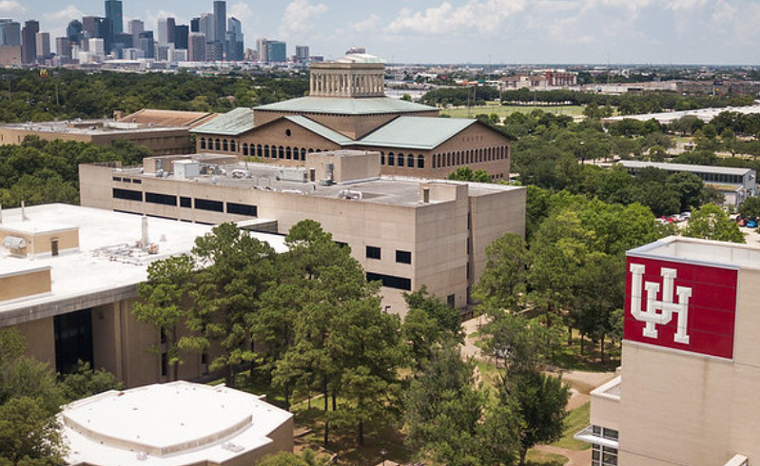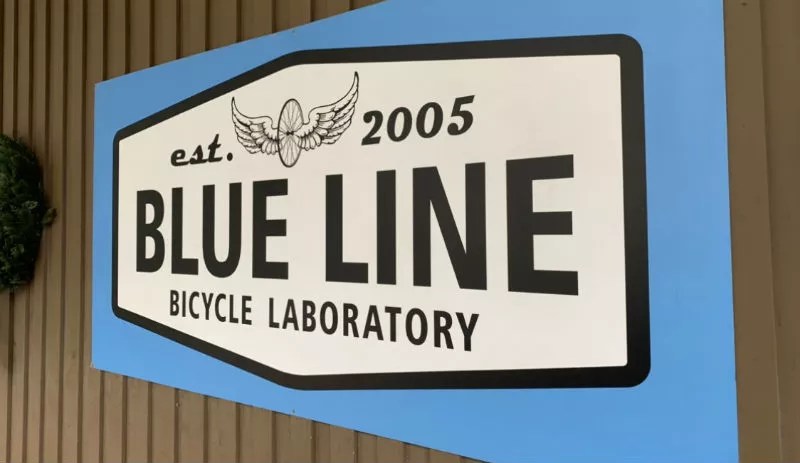Houston College Students Call for Improved Safety Measures in Wake of Charlie Kirk Death
Jessica Williamson is taking 12 hours at the University of Houston, working toward a degree in public health, but she doesn’t hang out on the campus after dark and she shies away from large outdoor gatherings.
Williamson is a nontraditional student. She’s 50 years old and a single mother. She works as a dental assistant and doesn’t have much time for or interest in student activities. But in the wake of conservative Christian activist Charlie Kirk’s assassination at Utah Valley University this month, she and other students say their awareness is heightened.
“At U of H, there are no metal detectors, there’s no nothing,” Williamson said. “And everything is in a separate building, so you have to walk across campus from class to class. The school of education is in one building, science is in another building, and engineering is in another building. It’s not safe.”
The student said she’s particularly concerned for transgender people and those who express their religious or political views through the way they dress. It’s their right to do so, she said, but they can be targeted.
“You’re not safe anywhere. It’s turned into, it’s OK to do things to people who you don’t agree with,” she said. “We have to be able to coexist with people of differing opinions. I put on my Facebook that I stand with Charlie Kirk because he was trying to hold an open dialogue. I also can see the frustration from the other side.”
UH student Anna Monroe said safety was a concern prior to Kirk’s death, and the heightened fear causes people to isolate.
“The college experience is supposed to be about meeting new people,” she said. “If anything, this is making people keep to themselves. You feel like you can’t go to campus. Even after COVID, everything was already isolated. When a student can’t feel safe on their own campus, it’s terrifying. This is a super-harsh reminder that your campus, which is supposed to be your home away from home, is not 100 percent safe.”
Rice University responded to the Charlie Kirk shooting with a statement from President Reginald DesRoches: “The Rice community and I join our fellow Americans in condemning today’s terrible violence and murder of Charlie Kirk at Utah Valley University,” he said on September 10. “Our thoughts are with Kirk’s family and our peers and colleagues at Utah Valley.”
“University campuses are places where we come together to safely and respectfully explore, discuss, and debate ideas across the political spectrum. This is the foundation of higher education. Honest, civil disagreement has always made us stronger, while violence only drives us further apart and corrodes the values at the heart of this nation and our democracy.”
A female college student was arrested and expelled from Texas Tech last week for allegedly mocking Kirk’s death at a vigil. A male student at Texas State University is “no longer enrolled” after a video circulated showing him patting his neck and saying, “My name is Charlie Kirk,” before falling over, according to reports. Kirk was shot in the neck.
Others have lost jobs, including late-night television host Jimmy Kimmel, for commenting on Kirk’s murder in a way that was perceived to be incendiary or hateful by their employers. Texas Gov. Greg Abbott got involved in the student expulsions; President Donald Trump, for whom Kirk campaigned last year, has condemned members of the press and Democratic lawmakers for their statements on the shooting.
Details are still emerging about 22-year-old Tyler Robinson, the Utah man charged in Kirk’s death, and little is known about his motive.
While UH hasn’t dealt with a political assassination or a mass-casualty shooting, some of its students say they no longer feel that the scenic, sprawling campus is immune to danger.
In February, a UH student was sexually assaulted at knifepoint in the Welcome Center Parking Garage. Students pleaded with the administration for increased safety measures, but a stronger police presence, more emergency phone kiosks, and offers to have a police officer escort students to their vehicles haven’t done much to quell the fears, Williamson said.
“They have this thing on the MyUH app where if you don’t feel safe walking to your car, you can call security, but it’s kind of pointless to do that because security doesn’t show up for quite a while,” she said. “I pay $400 a semester for a parking pass to be close to the buildings where my classes are.”
An apparent murder-suicide occurred in a residence hall at Rice University last year. The incident led to a two-day campus lockdown and cancellation of classes but authorities determined there was no immediate threat to other students.
Rice University posts a daily crime log, and most of the offenses are theft but occasionally include more serious crimes like weapons violations or assault. Rice’s Associate Vice President for Campus Safety and Research Security Tam Dao, a former head of the FBI’s Counterintelligence Task Force, said last week he was interested in doing an interview on campus safety, but the university’s director of media relations shut it down, saying they had no comment at this time.
Rice is near the upscale shopping and dining district Rice Village and is a private institution with a highly competitive acceptance rate and expensive tuition. A 2024 poll by the campus evaluation site Niche showed that 99 percent of students felt “extremely safe and secure on campus.” About 62 percent said campus police were “there if you need them but not overbearing.”
A similar Niche poll rated the University of Houston’s campus safety a C-, with one student commenting, “The campus is relatively safe but I wouldn’t recommend walking late at night. The outskirts of the university also don’t seem that safe and [I] would also not recommend going there.”
Williamson said the Charlie Kirk shooting, which occurred outdoors, may have been avoided if it had been held in an indoor auditorium with metal detectors. In today’s America, there are security guards at school board meetings and Little League games, so why aren’t they assigned to patrol college campus gatherings?
UH Director of Media Relations Bryan Luhn said the safety of students, faculty, staff, and visitors is the university’s highest priority.
“All campus events are reviewed by the University of Houston Police Department to determine appropriate security measures,” he said. “Depending on the nature of the event, the university may also require additional public safety personnel, including coordinating with appropriate state or federal agencies. To maintain the integrity of our security operations, we do not disclose specifics about our assessments or tactics, but every event is carefully reviewed and evaluated to help ensure as safe an environment as possible for our community.”
Some UH students say they’re fearful that an act of gun violence could occur on campus.
Photo by University of Houston
Monroe said her peers are generally receptive to the passage of Senate Bill 2972, known as the “Campus Protection Act,” which was signed into law by Governor Abbott in June, and prohibits students and staff from using microphones or sound-amplifying devices while protesting during class hours. It also restricts late-night protests.
“I am worried for the safety of the people who are active in those protests,” Monroe said. “Universities are being more strict on where students can protest and what time they can protest, for the safety of everyone in general, but it’s kind of disheartening. Regardless of what side you’re on, everybody’s a little bit unsafe.”
Small, unorganized gatherings, such as study groups, can slide under the radar, students told the Press last week. Monroe noted that because there’s a lot of construction on campus, it’s difficult for groups to gather outside. The largest police presence she’s seen is cops directing traffic, she said. Students have been told that the construction is related to adding security lighting, Monroe added.
Roughly 25 people attended a vigil this month in Kirk’s honor in front of the UH Memorial Student Center. A campus cop was nearby, patrolling a parking lot on foot, and the event was held during daylight hours. The keynote speaker, Christian Collins, a friend of Kirk’s and founder of the Texas Youth Summit, did not travel with security or appear to be wearing a bulletproof vest.
University of Houston students gathered for a vigil on September 11 in remembrance of Charlie Kirk.
Photo by April Towery
Collins encouraged the crowd to remain vigilant in spreading Christian values.
“We are in a war in this country. It is a spiritual and political war, and it is a cultural war,” he said. “We have to win. We need crusaders for truth. We need leaders who are not afraid. We cannot live in fear. We have to fight back.”
The 2025 Texas Youth Summit, featuring several prominent Republican speakers and sponsored by Kirk’s Turning Point USA, was held over the weekend at The Woodlands Water Marriott. Organizers advertised ahead of the gathering that there would be “unprecedented security.”
Monroe, a 20-year-old who serves as the opinions editor of the student newspaper The Daily Cougar, moved 600 miles away from her family in the Texas Panhandle to attend UH.
“Campus itself hasn’t changed much [since Kirk’s death] but I can definitely sense it within the community and with the students,” she said. “At least for me and my friends, we’ve always felt, to a certain extent, unsafe. School shootings have gotten worse and worse. It’s a harsh reminder that the possibilities are endless.”
Houston Community College sociology student Leah Johnson, 54, said the campus she attends in Stafford has expanded recently and has sporting events and large outdoor gatherings, but her routine is to go to class and return home.
“Even before [the Charlie Kirk shooting] you can’t talk to anybody nowadays without somebody getting upset or starting to talk about how they want to pull a gun,” she said.
Johnson said police are present on her campus but she avoids crowds because she gets anxiety attacks.
“I am constantly looking around,” she said. “If you bump somebody or step on somebody’s shoe, you never know what might happen. I am constantly looking to see what people are carrying, looking at their clothes, things that I wouldn’t normally do. When I was growing up, I didn’t have to think about any of this stuff.”
Monroe said she, too, has to keep her guard up. “If you look scared, you will be targeted,” she said.
“I carry a stun gun,” she said. “Even in broad daylight, you’re not necessarily 100 percent safe. It’s making sure you always have someone with you, texting friends, ‘Hey, did you get to your car OK?’ When we have meetings at the office late, we make sure to drop everybody off at their car. Even if it seems like we’re putting a lot of extra energy into making sure everyone’s safe, it’s worth it.”
The student said her parents “weren’t really on board” with her move across the state, so she’s careful about the information she shares with them.
“I hate seeing them worried, and it validates my anxiety when my parents have anxiety,” she said.
Safety Measures on Houston Campuses
The University of Houston Downtown Security Master Plan, adopted in March 2025, references the need for a proactive approach in light of the 2007 Virginia Tech massacre, the COVID-19 pandemic, and recent campus protests and demonstrations.
The Clery Act passed in 1990, named for a student who was raped and murdered in a Lehigh University dorm in Pennsylvania. It requires that colleges and universities that participate in federal financial aid programs disclose information about crime on and near their campuses. Because of the Clery Act, Houston colleges and universities alert students immediately via text message when a crime has occurred that may impact their safety.
UH’s Security Master Plan aims to “prepare for the unknown in a strategic, proactive manner and to establish benchmarks, universal security standards and protocols to prepare [campus police] for whatever unanticipated events may unfold in the future,” according to the 35-page document.
Although a proactive approach is preferred, the campus responds as needed to events like the parking garage rape earlier this year. After that incident, for which a 40-year-old man was arrested, UH administrators announced that additional security personnel would patrol all parking areas and high-traffic spots on bikes and carts. Additionally, campus security staff, who already patrolled 24/7, was doubled.
“We are working on immediate solutions to improve the visibility of our security team, including the placement of improved lighting systems on UHPD bicycles and carts,” campus police said at the time. “More security officers are stationed at our six parking garages and 10 surface lots as well as at bike and scooter racks.”
According to the UH 2024 Annual Security and Fire Safety Report, the university offers a monthly on-campus meeting, “Coffee With a Cop,” so students can interact with law enforcement. A Civilian Response to Active Shooter Events course is also offered on demand.
Monroe said it’s challenging for students to do anything to improve campus safety conditions. All they can do is look out for each other, vote, and keep talking, she said.
“We need to stay strong in our stance that we feel unsafe, that we need more security, and we need the government to have more laws on gun control,” she said. “That’s the best we can do for now. We are going to be the future. If we start using our voices now, we can have a lot of influence.”
Monroe added that students, no matter their age or which campus they’re on, should be mindful that they’re in a huge metropolitan area where violent acts can occur. She said students should know where the closest exits are in the buildings they frequent and have a strategy for what to do if a shooting occurs.
“It’s like dominoes,” she said of campus violence. “Once something happens, they just keep on falling and stuff keeps on happening. I feel like we as students need to be consistent in our voice. With all the fear-mongering, it’s going to be really hard to be strong in that stance. It hurts my heart to say it, but we have to think about whether we’ll hide under the desk or how we’ll get out. If we’ve gotten to the point where if that’s what students are daydreaming about, that’s crazy.”
Williamson said she’ll never go anywhere on campus at night, especially if she’s alone.
“And I carry pepper spray,” she said. “I’m an old lady walking on campus. If I sign up for any kind of class at night, I have lost my marbles. Maybe someone is not going to shoot me but if someone is going to rob me or steal my car, they’re going to do it to the most vulnerable people, and at night. Who’s more vulnerable than a college kid? I think everybody needs to feel safe.”

Reign Bowers is an outdoor enthusiast, adventure seeker, and storyteller passionate about exploring nature’s wonders. As the creator of SuperheroineLinks.com, Reign shares inspiring stories, practical tips, and expert insights to empower others—especially women—to embrace the great outdoors with confidence.






Post Comment